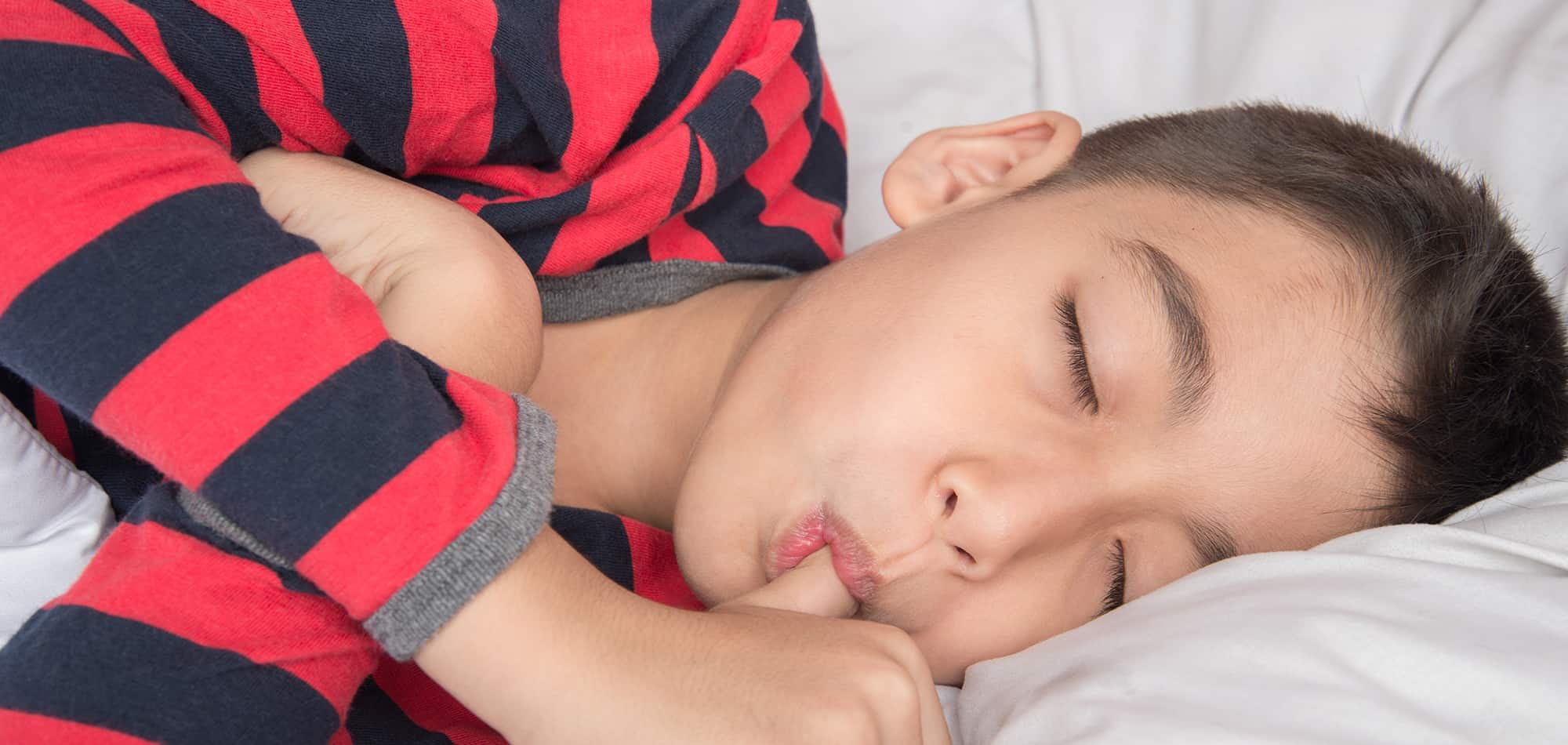All parents want their children to grow up happy and healthy with a beautiful smile. That’s why one of the most disconcerting habits children develop is thumb or finger sucking. Whilst it is normal in young children, sucking habits can quickly become an issue if they stick around longer than intended. However, in order to address this behaviour, parents first need to know when sucking habits are considered normal and when your child needs assistance to overcome their habit.
WHY IS MY CHILD THUMB SUCKING?
Firstly, it is important to note that thumb sucking is normal among babies and toddlers. It’s a natural reflex that is required for nutrition, whether the child is breast or bottle feeding. Babies first begin sucking their thumbs while they are in their mothers’ womb, and once they are born it is utilised as a self-soothing and calming method. As the child gets older, and their teeth and stomach develop, the habit usually rectifies itself. But sometimes, this isn’t the case.
WHEN SHOULD THEY BE STOPPING?
While it is highly recommended that children stop sucking their thumbs by the age of four, research shows that damage can begin even earlier. In fact, most of the growth and development of the face and jaws are in the first two years of life. Therefore, whilst the permanent teeth don’t start to come out until around age five in children, sometimes much of the damage to the jaws and teeth has already been done in the earlier years.
WHAT PROBLEMS DOES THUMB SUCKING CAUSE?
Sucking habits affect all kids different and sometimes not at all! However, these habits can prevent teeth from fully erupting, causing the upper teeth to protrude forward and result in what is called an open bite. This is where the front teeth don’t meet when the back teeth are closed. Sucking habits can also cause sleep and airway problems, mouth breathing and gut issues. However, the risk of damage also depends on how often, how long and how intensely your child sucks their thumb.
WHY DO CHILDREN SOMETIMES NOT GROW OUT OF IT?
Thumb sucking is a bit of a chemical party for kids. When a child sucks their thumb, fingers and even a pacifier, the brain releases three main chemicals: dopamine, serotonin and endorphins, all of which have the effect of soothing and calming stress. This chemical rush makes the habit addictive and difficult (but not impossible) to break. The thumb sucking habit could also be soothing, (or in the case of parents hiding), a larger health issue such as gut inflammation. This is because thumb sucking increases endorphins which acts as a pain reliever, initiates the production of saliva which contains acid neutralisers, and can also push rising acid back down into the stomach. It’s basically the equivalent of Panadol for kids.
HOW CAN YOU HELP YOUR CHILD BREAK THEIR SUCKING HABIT?
There are a few techniques you can employ to help encourage your child to stop sucking their thumb.
- Gentle conversation – An age-appropriate, warm discussion with your child around how you can support them in breaking their habit is always going to work better than shaming and shouting (Trust me, I’ve been there with my own kids!).
- Develop a rewards system – Positive reinforcement through a rewards system can be a great motivator for children.
- Utilise gloves – If your child is wanting to quit but struggling by themselves, utilising specialised gloves designed for thumb suckers can be a great physical reminder for children in case they forget.
- Books – Most books revolve around “getting better” or “growing up,” emulating that positive language and highlighting to children that it is time to stop the habit since they are “growing bigger.”
A combination of these constructive strategies will help your child stop their habit without tears and tantrums. The key here is to understand that it isn’t going to happen overnight. Remember, go gently, and always be kind. And if you need help, seek attention from the experts. That’s what we are here for!






